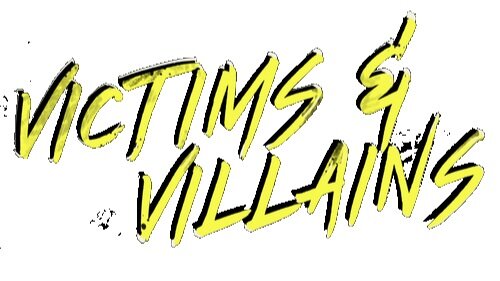Sports movies are a dime a dozen. In fact, sports dramas are a dime a dozen. While there are countless football, basketball, and baseball films out there, movies about the fine game of billiards tend to be a rare thing. Sure, you have classics like Paul Newman’s “The Hustler” and its sequel “The Color of Money.” Every once in a while, a slick newcomer like 2002’s “Poolhall Junkies” comes along to shake things up. The formula is there: take a dramatic character story, throw in some jazz and zoom in one some cool trick shots, and you’ve got yourself a billiards film. So, how does “Walkaway Joe,” compare to its short line of predecessors?
“Walkaway Joe” centers around a boy who has run away from his home. When we first meet the boy, who is not named Joe, but rather Dallas, he’s playing pool at a bar with his father. Apparently, the kid is a protégé, though we only see him shoot one shot. His father, however, is a slick-talking, confident swindler who knows how to play the game as well as how to play the players. In the first few minutes of the film, we get the sense that the father owes someone a lot of money, and thus he goes on the run and abandons his family. Dallas believes he can bring his deadbeat dad back home, and so he runs away despite his mother’s pleas. It doesn’t take long for Dallas to find himself helpless and alone on the road. He’s picked up by a traveling old man named Joe, who agrees to take him to a tournament where Dallas is sure he’ll find his dad.
The film features a handful of incredibly talented actors. Jeffrey Dean Morgan, of “The Walking Dead” and “Watchmen” fame, plays Cal McCarthy, the lousy father who prefers to play pool rather than take care of his family. Julie Ann Emery, of “Better Call Saul,” “Hitch,” and “Preacher,” plays Gina McCarthy, the mother who is constantly taken advantage of, ignored, and abused by both her husband and her teenage son. David Strathairn, of the “Jason Bourne” films and recently of “The Expanse,” plays Joe Haley, the lonely RV driver who walked away from his family and is filled with regret. Joe is beyond patient with the wild and disrespectful antics of young Dallas, and acts as the father figure Dallas should have had.
That brings us to the lead of the film, Julian Feder, who plays Dallas McCarthy. Despite having won 6 Best Actor and Best Performance awards since 2014, Julian comes off as the amateur in a room full of professionals. While Jeffrey Dean Morgan and David Strathairn have no problem stealing every scene they are in, Julian brings the film to a cringy crawl every time he is on screen. Whether it be the single frown that Julian wears throughout the entire film, the over the top physical outbursts when he is trying to portray some emotion, or his constant mumbling (to the point that I needed subtitles to understand more than half of his lines), Julian fails to deliver any kind of compelling performance. On top of this, his character of a moody teenager is so far from likeable that I was surprised with some of the choices the screenwriter made. Between this fourteen-year-old lashing out violently at his mom to somehow easily getting drinks at any bar, I struggled to have any kind of sympathy for his character.
About three-fourths of the way through the runtime, “Walkaway Joe” remembers that its lead characters are apparently professional pool players. We are given a long, jazzy, tournament sequence where we’re forced to believe that this bratty teen is somehow the Kobe Bryant of billiards. On top of that, every single major event of this film is spoiled in the trailer, so I was able to predict, fairly easily, which beats were about to hit. There are some times within the film when the cinematography shines. I also tended to enjoy the score, especially when it was used in dramatic moments instead of the lackluster pop song choices made in other scenes.
The best character arc within this film is that of David Strathairn’s Joe. Despite Joe being the title character, we are forced to follow the teenage Dallas’s drama for the majority of the movie. I would have preferred to watch an entire film about Joe’s life on the road, his drama with his family, and his struggles to tame his inner demons. If there is a positive side to this review, it’s that I was at least intrigued by Joe’s character. Sadly, the rest of the film was predictable and uninspiring. I love a confident, young, smartass underdog like everybody else, but screenwriters have to remember to write some humanity into their characters. If the smartass comes off as too abrasive, it’s incredibly hard to root for them for the remainder of the film. “Walkaway Joe” wasn’t torturous to watch as a whole.
RORSCHACH RATING:
If you or someone you know is reading this right now and you are struggling with suicide, depression, addiction, or self-harm - please reach out. Comment, message or tweet to us. Go to victimsandvillains.net/hope for more resources. Call the suicide lifeline at 1-800-273-8255. Text "HELP" to 741-741. There is hope & you DO have so much value and worth!
Victims and Villains is written and produced by Josh "Captain Nostalgia" Burkey. Music by Yuriy Bespalov & Beggars. This post was edited by Cam Smith. Walkaway Joe is property of Quiver Distribution. We do not own nor claim any rights. Walkaway Joe is available now on VOD.
You can now support us on Patreon. Help us get mental health resources into schools and get exclusive content at the same time. Click here to join today!

